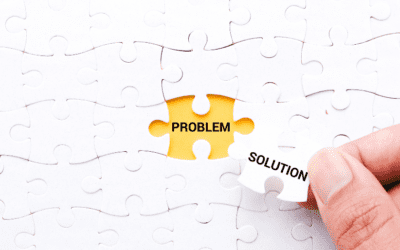When we think about the skills required for just about any role, it’s only natural to first think about technical abilities. A musician must know how to play an instrument. A translator must be fluent in at least two languages. Most of the time, these so-called “hard skills” really do paint the picture for what any given role is all about.
But what makes the product manager’s job so interesting is that, unlike most professions, technical skills often take a back seat. It’s one of very few fields where hard skills are nuanced from case to case, while soft skills remain consistent. Yet, these tend to be the most under-appreciated product management skills.
Not convinced? Look no further than these 4 essential product management skills we wrote about in a previous post. You guessed it, they’re all soft skills.
To open up the discussion on the hard skills vs. soft skills paradigm, we sat down with Ashok Bania, Director of Product Management at Headspace, a popular meditation application that strives to “improve the health and happiness of the world.”
Pulling from a rich trove of product management experience, Ashok recently wrote an inspired piece on the key differences between hard and soft skills. He was kind enough to field our questions on the topic and even offer up some personal anecdotes to help illustrate why soft skills lay the foundation for successful product management.
So without further ado, we hope you enjoy the following Q&A!
How did you get into product management?
They say that no two product management career paths are the same, and I certainly can attest to that. I went to school for electrical engineering and never would’ve predicted that I’d eventually become a product manager.
I wanted to build chips for sensors and Micro-Electro-Mechanical Systems (MEMS). So I got a Master’s degree in microelectronics. But what I later realized is that this field was just an avenue that allowed me to exercise a greater underlying passion: I wanted to build things.
I started to recognize my love for products. I liked tinkering and building things on my own. I was drawn to handcrafted products that regular people like me would use.
So I enrolled in business school to learn all about product management—how to market, how to research, how to ideate. Shortly after that I joined an Indian media house where I wore a bunch of different hats in what I now would describe as an associate product management role.
I managed a couple different initiatives for the company, from launching a radio station to managing a newspaper that was read by more than five million people. This was my first true product management experience. And since then, I’ve held product roles at a number of startups and publicly traded companies.
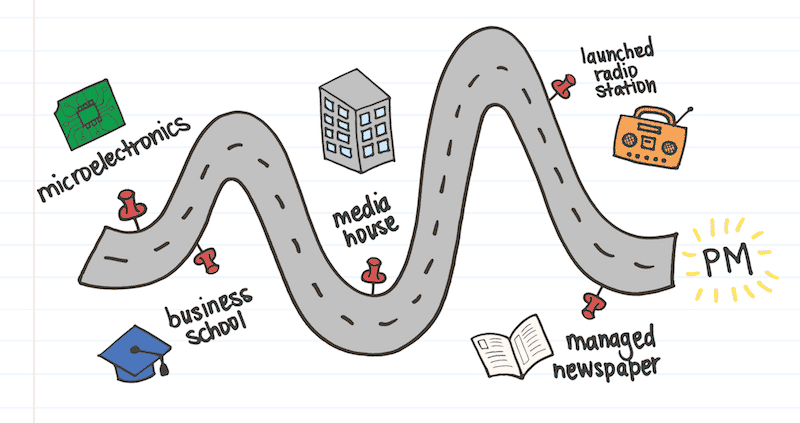
How can you set yourself up for success in a new product management role?
For any new role, I think it’s important to seek context and create a plan.
As far as context, my best experiences were defined by understanding the company and the people within it. One particular company comes to mind. Before joining, I knew some of the people I’d be working with. Through interviewing, connecting on LinkedIn, and informal coffee meet-ups, I had a pretty good idea who I’d be working alongside for the foreseeable future.
And through his process, I also learned all about the company itself—specifically about product strategy, company mission, and day-to-day operations.
As far as the plan, maybe it’s a 60 or 90-day plan that maps out what you strive to accomplish in the first few months of your role. This is not a plan that maps out everything you want to change or implement. Rather, it explains what you want to learn, who you want to meet, and how you expect to further acquire context so that you can make meaningful changes once settled.
In any new product role, I’d encourage product managers to embrace a beginner’s mind. You’re the new kid on the block. What’s most important is that you understand what people are working on, how they’re working on it, and why they’re working on it. When you want to take action, start by focusing on baby steps. Try and find little things you can do to help your new coworkers. By doing this, rapport-building is accelerated and confidence is gained quickly.
Did it take any bad experiences in product management to learn this?
Yeah, it’s definitely been a learning process. One particular transition didn’t go nearly as smoothly.
I had been working on back-end machine learning systems and I accepted a new role. I effectively held the same title, but the new company was scaled much larger. I carried a lot of biases that had formed in my previous role. I managed lots of things that worked there, so why not copy and paste the same system?
So I effectively came with a plan. But not the kind of plan we just talked about. I wanted to hit the ground running and make changes, quickly.
And that’s what I did. I gave into this sense of urgency that pushed me to make my impact felt. It’s not that the experience was a total failure. Some things worked, others didn’t. But I was thinking short term. Where I really felt the crunch was later on, when I realized that some of my efforts rubbed people the wrong way. It’s hard to build trust when you focus on the product BEFORE the people.
What I learned is that as product people, when we slow down at the beginning, we actually move a lot faster later on. Building shared understanding is most important. When you take the time to get people excited about about the work and how it relates to the bigger picture, they work 200% harder.
So that’s where I really learned the importance of those first few months in a new role. Product managers often want to get tactical and prove their worth. But if you’re in it for the long haul, focus on the soft skills. Connect with your new teammates. Learn as much as you can. Over-communicate. This all helps to achieve that sense of shared understanding that will accelerate productivity in the future.
What are soft skills in your own words? How do they differ from hard skills?
Hard skills are very pertinent to your role and the work you are doing. They are your technical skills. For example, if you’re a data engineer, hard skills represent how much you know about data, how much you know about models, how much you know about statistics, so on and so forth.
However soft skills are not directly pertinent to your job. Soft skills will help you in just about any job, and even in your own personal life. Think things like communication, time-management, and focus.
Why is it so important to have soft skills in product management, maybe more so than any other role?
If you look at the product management role, you can draw two axes. One is working with people, and one is working with the product.
Naturally, product managers work with the product a lot, especially at the beginning of a new role. What’s the vision of my product? How can I help us reach our milestones? How can I write user stories? There is no shortage of product-centric things to think about.
But as you move up in seniority and take on more responsibility, working with people becomes more and more important. Your product ideas and analyses are only as valuable as your ability to put things into action. And putting things into action is all about working with others in the organization. This process involves a number of soft skills, like communication, persuasion, negotiation, and evangelism.
So in a word, I would say soft skills in product management are wildly underrated.
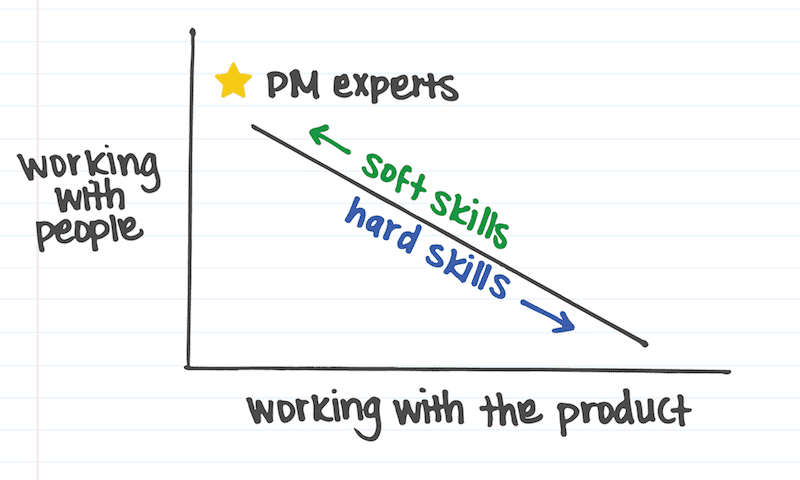
What causes people and product managers specifically to fall short with soft skills?
I feel like two things cause people to fall short in general in soft skills: the lack of curiosity and courage.
First, when people are not curious, they fail to open up their minds and learn. They get stuck in their own echo chamber, when in reality, there are always so many new things to discover. And second, courage. If and when you have courage, you can take on the challenge of improving yourself, both inside and outside the office.
And the two are closely tied together, too. It takes courage to be curious. To admit that you don’t know something isn’t a sign of weakness. To me, it suggests you’re motivated to improve.
Can you think of any soft skills that overlap with Headspace’s values and mission?
Headspace has a lot of great people and we all work very cross-functionally on a number of different projects. So in general, people are very mindful. Mindful of their own work and respectful of the schedules of others.
Resilience also comes to mind. And this is a soft skill which serves personal growth, not just your work life. We all understand that we are working on a hand-crafted product, with limited models and examples to follow. A lot of what we are doing with meditation is very new, so we experiment frequently. We stumble upon unknowns. Sometimes we even fail. Couple this with the constant flux of your typical startup and it can be a lot to handle. So resilience is key.
And finally, our company values reflect soft skills: Curious mind, courageous heart, and selfless drive. I already talked a bit about curiosity and courage. And although selfless drive isn’t a soft skill, per se, I think it’s a quality that helps develop soft skills, like trust, motivation, and focus.
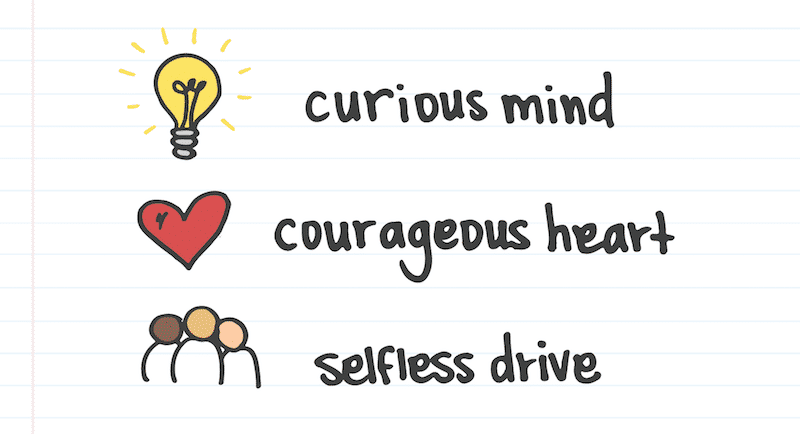
Does Headspace have any traditions or practices that encourage product managers to lean on soft skills?
We tend to value autonomy in the way we work. This comes with a lot of responsibility—responsibility towards the product, our team members, our users, and our employees.
Another byproduct of autonomy is that we get a lot of time to reflect. Meditation is a practice that promotes reflection, and we incorporate this in most of our work. For example, we do a lot of post-launch analysis. We constantly reflect on what we have done in the past. How can we change our processes as well as our thinking to improve the Headspace experience for all those involved?
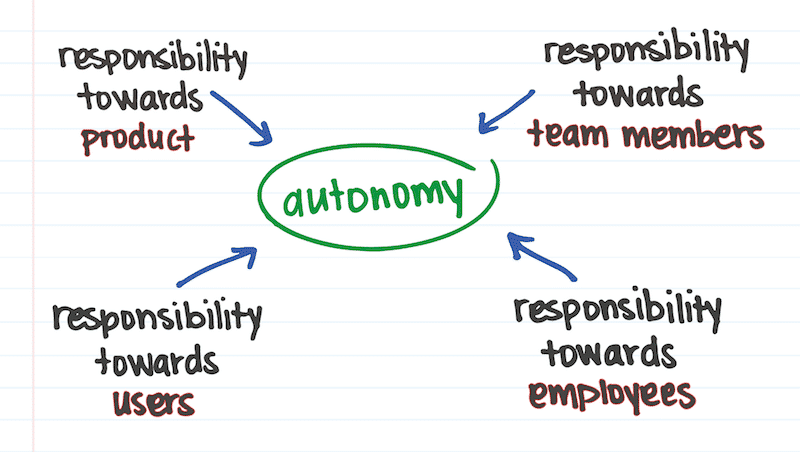
Finally, is meditation itself a soft skill?
I would say meditation itself is a practice. And a practice is slightly different from a skill. Just like communication can be a practice, but not a skill. Over time, communication can become something you’re skilled at, but it takes work.
Honing your meditation craft takes work too. But I don’t see why it can’t become a soft skill. As something that will certainly help you both in work and in life, it checks off all the soft skill boxes for me.
Thank you again to Ashok for a great discussion. What are some soft skills that you lean on as a product manager? Please feel free to share in the comments below!

